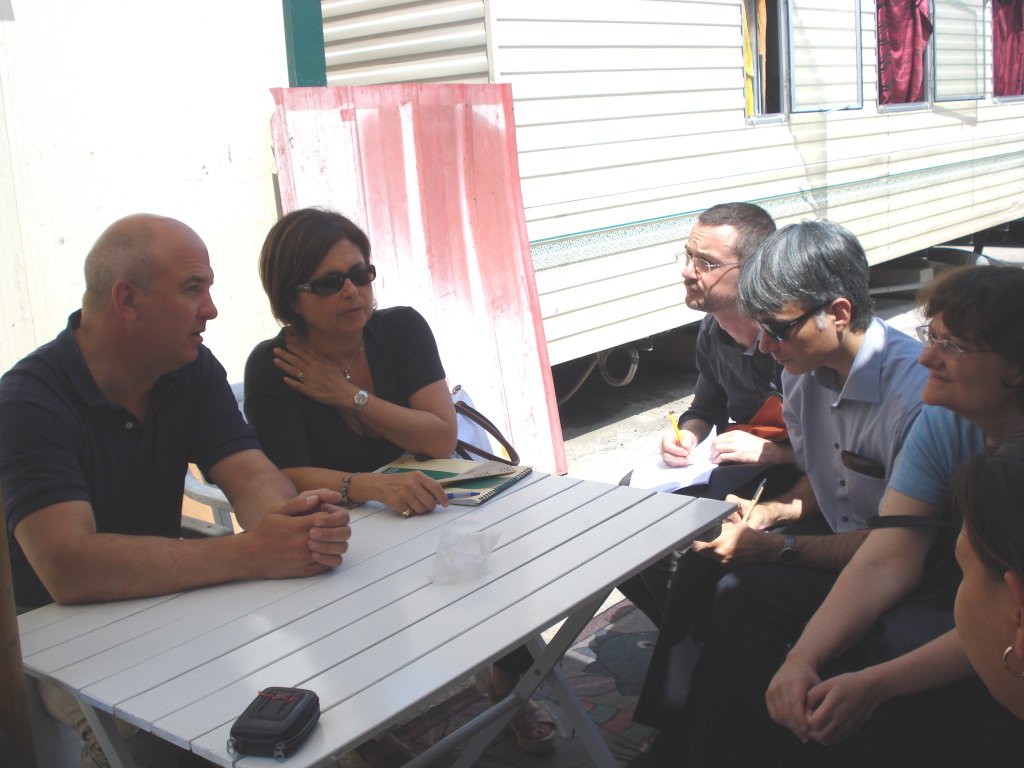Dosta! Basta Italia! Yet another official rebuke for Roma rights abuses
03 August 2016
In the latest criticism of Italy’s shameful treatment of Roma, a Strasbourg body expressed concern at the noticeable increase of xenophobia and anti-Gypsyism, and the widespread and commonplace use of discriminatory, intolerant, and racist language in political discourse and media outlets in Italy.
On 12 July, the Advisory Committee on the Framework Convention for the Protection of National Minorities in its Fourth Opinion on Italy stated that despite previous recommendations there had been no progress to amend Law No.°482/19997 to cover Roma, Sinti and Caminanti or to adopt specific legislation to protect these communities from discrimination.
Three years after the adoption of the national Roma strategy, and despite the espousal of a more rights-based rhetoric of inclusion, the Committee notes “regrettably … the Strategy has not achieved any significant progress towards its stated goals.”
The body designated to implement the strategy, the Office for the Promotion of Equal Treatment and the Fight against Racial Discrimination (UNAR), is described as weak, subordinated to the Department for Equal Opportunities of the Presidency of the Council of Ministers; and devoid of power beyond persuasion and moral authority: “It is deeply regrettable that UNAR cannot bring legal proceedings in discrimination cases and its intervention is limited to amicus curiae briefs.”
In a very forthright condemnation of institutional and popular racism, the committee condemned the continued use of the term “nomads” in public and official discourse as “perpetuating an outdated and discriminatory reference, which has little to do with reality today.” The designation “nomad” has served too long and too effectively as justification for “settling” these communities in segregated camps; forcing them to live apart from society in often deplorable conditions; and according to the report, “shifting the blame for poverty, hostility and systematic discrimination on the shoulders of Roma and ultimately maintaining the inertia of the status quo.”

Commissioner for Human Rights Nils Muižnieks visits Salone formal camp in Italy to talk with Roma. Photo Credit: ERRC
In January this year, the Council of Europe called for an end to forced evictions of Roma across Europe. In a letter to the Italian premier, the Commissioner for Human Rights, Nils Muižnieks warned that evictions without due process, which lead to homelessness, are a violation of Italy’s international obligations. He expressed his regret at the continuation of ‘past policies’ associated with the Nomad emergency; his deep concern about the living conditions endured by Roma in camps; and called on the authorities to halt forced evictions, end homelessness, close Roma-only camps and segregated emergency facilities “by offering genuinely integrated ordinary housing alternatives to the families concerned.”
It is clear from evidence gathered by the ERRC, Amnesty International and other partners, that Muižnieks’ call went unheeded throughout this year – forced evictions continue unabated; families, including the most vulnerable are cast out on the streets, herded into squalid overcrowded segregated emergency shelters, or ‘relocated’ onto camps.
As to these camps, in this most recent report, the Advisory Committee “finds it most surprising that the authorities tolerate a state of affairs where people continue to live in undignified conditions, without access to basic amenities, surrounded by fencing and according to some sources “protected” by criminal organisations.” As to the use and abuse of EU funding, the report noted that the Municipality of Naples authorised construction of a “temporary” segregated camp for Roma (Cupa Perillo camp, in Scampia) to be funded from the European Regional Development Fund (ERDF) earmarked for projects to strengthen economic and social cohesion.
On 21 June, the ERRC and partner organisations denounced the forced eviction of around 300 Roma including dozens of children including infants from camp of Masseria del Pozzo, which was built in 2013 by the Giugliano municipality in close proximity to a landfill stocking toxic waste. The families were moved to a rubble-strewn site on the industrial outskirts, with only one functioning but filthy toilet, and four water taps. On arrival on the 22 June, the inhabitants had no access to electricity and were using open fires, batteries and car lights to illuminate the place after dark.
This is but the latest incident in a blatantly discriminatory policy affecting thousands of Roma. Over the last three years those evicted have, on average, experienced at least five previous evictions. These punitive actions create circular patterns: Roma living in irregular settlements are evicted, and put into emergency camps for a certain period of time, then cast out onto the street and forced to build squats on irregular sites until being evicted yet again.
Despite damning reports from Strasbourg, expressions of concern from Brussels, and many submissions from human rights organisations documenting the abuses, the Italian government remains impervious to criticism, and seems determined to persist with policies inherited from Berlusconi’s so-called Nomad Emergency.
Such discriminatory policies are in clear breach of Italy’s international commitments, run totally counter to the stated objectives of the EU Framework for National Roma Integration Strategies – forced evictions, in addition to inflicting undue hardship on vulnerable people, routinely make a nonsense of the Racial Equality Directive. It is clearly time for the European Commission, as guardian of the treaties, to initiate infringement proceedings against Italy.




